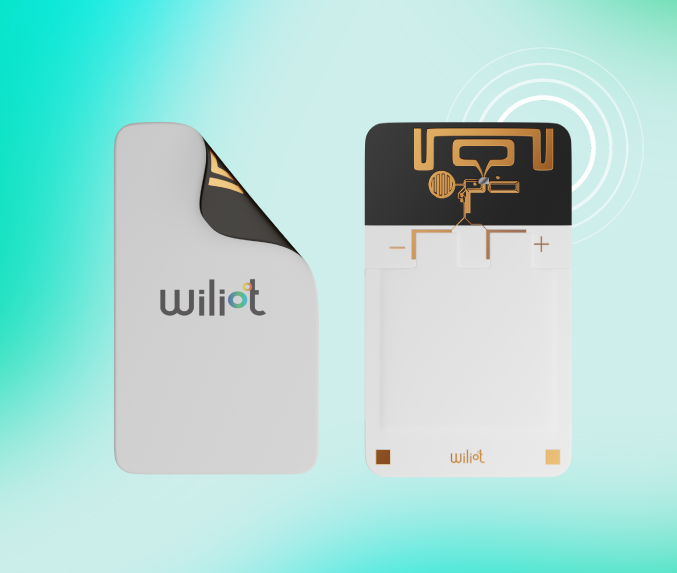Wiliot launches retail battery-powered tag
- June 20, 2022
- William Payne

IoT firm Wiliot has launched a business card-sized battery-assisted IoT tag. The new tag, which complements an existing stamp-sized battery-free IoT tag the company already markets, is intended for more expensive and larger retail items, such as furniture, electronic goods, promotional signage, retail and IT assets, and goods in shipping.
The new battery powered tag incorporates power-efficient cloud and chip technology, and will sell at below $2.
Wiliot’s new battery-powered Pixel tag has been developed together with smart tag manufacturer Identiv.
The company introduced its battery-free IoT Pixel in March. This is described by Wiliot as “a stamp-sized computer that costs pennies and powers itself by harvesting and recycling energy from radio waves”. The battery-free Pixel IoT tag is seeing adoption by retail, food, beverage, and pharmaceutical firms.
The Wiliot Battery-Assisted IoT Pixel uses the same efficient chip as the Battery-Free IoT Pixel, but it augments it with a tiny printed battery. The tags are smaller than a business card and broadcast the same standard Bluetooth beacon as the company’s Battery-Free IoT Pixel.
“Wiliot was founded on the mission to transform industries by embedding everything with cloud intelligence using our IoT pixel tagging technology,” said Roee Zeiler, Wiliot’s CFO. “We began by tackling this challenge with battery-free technology, which significantly reduced barriers to IoT adoption and will scale the IoT from billions to trillions.”
According to Wiliot, its battery-assisted tag reduces the cost of bringing Bluetooth standards-based continuous connectivity and intelligence to things by 10X. The company’s battery-free product cut the cost of Bluetooth standard integration by 100X, the company said in a statement.
“We’ve always understood that certain applications are best addressed with battery-assisted technology – which is why this launch is a milestone for Wiliot, Identiv, and the industry,” said Zeiler. “Now, with a portfolio that includes battery-free and battery-assisted pixels, we’re one step closer to achieving our goal of creating an Internet of Trillions of Things (IoT2).”
Unlike the battery-free version, the Battery-Assisted IoT Pixel doesn’t require bridges or any other source of radio waves to harvest energy from. All they require is a device with a Bluetooth radio to read their transmission – any phone, Bluetooth gateway, or Wi-Fi access point.
While Battery-Free IoT Pixels address the tracking of low-priced products – clothing, food, medicine, and more – this launch enables tracking of medium value to higher value assets such as temporary promotional signage, certain returnable transport items, IT assets, and retail assets – which benefit from the boosted connectivity yet can also better absorb the battery-assisted pixel’s higher price-point.
The first Battery-Assisted IoT Pixel will be mass-produced by smart tag manufacturer Identiv. Limited availability of the Battery-Assisted IoT Pixels will begin next month, while larger quantities will be ready for roll-out by the end of year.
“Identiv always strives to innovate, and our contribution to this new era of Bluetooth-based IoT is an outcome of the scalable manufacturing standards, unique processes, and expertise we have mastered in the NFC and RFID ecosystem. Bluetooth is pervasive, and this new product offers the advantages of providing infrastructure-free temperature sensing, tracking, and traceability. We are proud to collaborate with Wiliot and scale solutions into many Internet of Things deployments,” said Amir Khoshniyati, VP and GM Transponders, Identiv.




